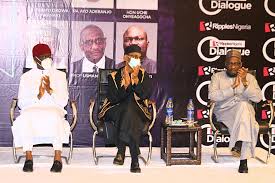The International Human Rights Commission (IHRC) has expressed concern over Nigeria’s ongoing ethnic and religious conflicts, which threaten the nation’s unity and stability. Speaking at a symposium in Abuja on Thursday, IHRC Head of Diplomatic Mission, Duru Hezekiah, warned that this trend could jeopardize Nigeria’s future.
During the event, titled “Unity in Diversity: Embracing Freedom, Equality, and Dignity for All,” the IHRC also inaugurated new officials. Hezekiah emphasized that while Nigeria boasts a rich diversity with over 250 ethnic groups and 500 languages, this diversity has yet to be fully leveraged for national development due to divisive forces.
“Promoting inclusive governance can turn Nigeria’s diversity into a tool for prosperity,” Hezekiah noted. He added that embracing diversity fosters cultural exchange and understanding, which are essential for national unity.
Legal expert and Senior Advocate of Nigeria, Professor Mike Ozekhome, echoed Hezekiah’s sentiments, highlighting the disconnect between Nigeria’s potential and its reality. He criticized the nation’s leadership for failing to realize the vision of “unity in diversity,” which should be its strength rather than a source of division.
Ozekhome also pointed to systemic issues, such as ethnic nepotism and institutionalized discrimination. He cited the inequitable distribution of value-added tax (VAT), noting that states like Lagos generate massive revenues but receive far less in return, exacerbating regional tensions.
Major Hamza Al-Mustapha, former Chief Security Officer to late General Sani Abacha, gave a grim assessment of Nigeria’s state, declaring it a “failed state” due to dysfunctional institutions and rampant corruption. He criticized the international human rights community for its silence on Nigeria’s electoral irregularities and systemic failures, urging more vocal support for Nigerians suffering from poverty and injustice.

